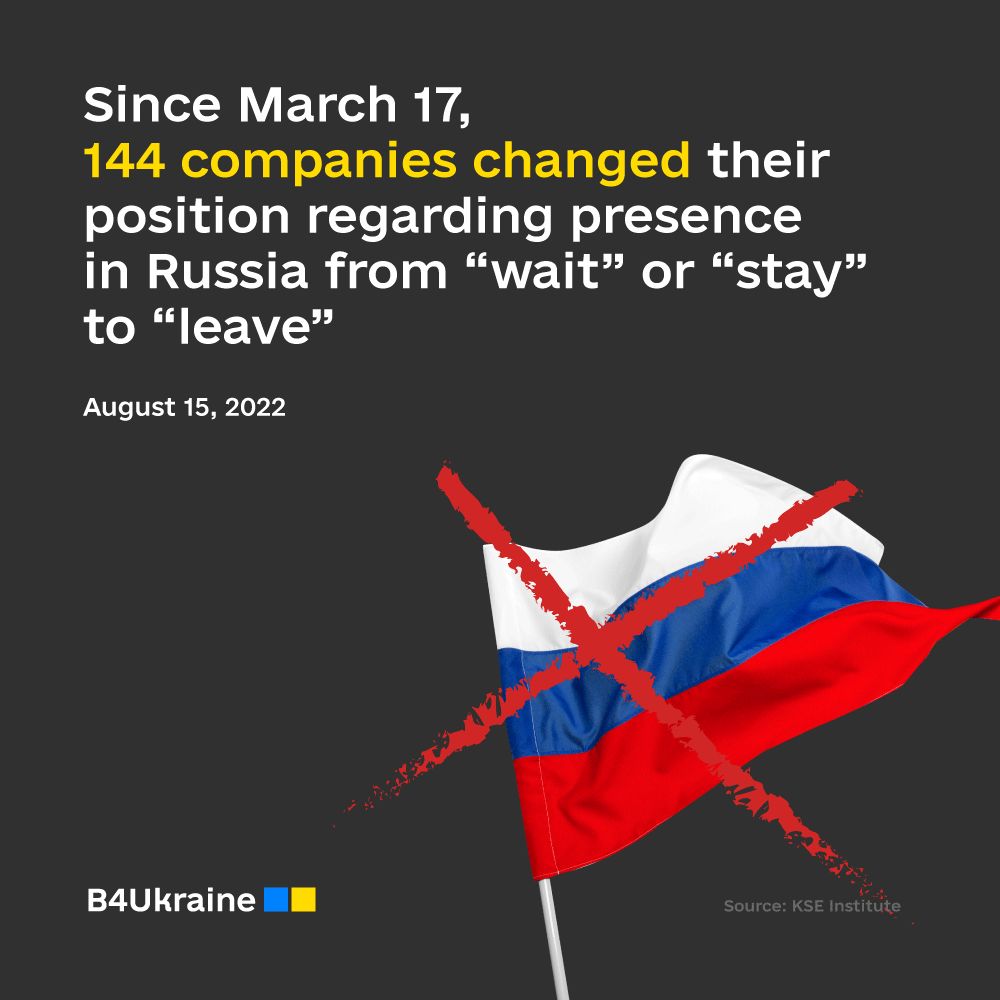
Since the start of the Russian full-scale invasion of Ukraine, hundreds of international companies have decided to leave the aggressor country. However, a large number of businesses opted to buy time by cutting some activities in Russia and keeping the rest. As time went by, some of them changed their vision of what to do next. Not all of them decided to leave.
A new study by the KSE Institute analyzed claims of almost 2 400 companies regarding their presence in Russia and found that 326 of them changed their initial position as time went by. Some 116 companies moved from “stay” (remaining silent and doing business as usual) to the “wait” option (cutting some operations in Russia but not withdrawing completely). Only 144 companies chose to leave the country completely, moving on from the previous position of “wait” (61 companies) and “stay” (83 companies).
Meanwhile, some companies were moving in the opposite direction. Seven companies changed positions from “wait” or “leave” to “stay” in Russia. These are, for example, Air Serbia (which has resumed flights), German agricultural equipment manufacturer Claas (still operating in Russia; not publicly disclosed), and tire manufacturer Continental (on August 1 in Kaluga, the Continental car tire production plant resumed operations), Ukrainian bookmaker Parimatch (continues its activities in Russia under another name - Paribet), Japanese Fujifilm (after a break still works and advertises in Russia) and some others.
This is a good reminder that no claim is carved in stone. Any move can be reversed. On one hand, it means that companies still operating in Russia can leave at any point no matter what they communicated earlier. On the other hand, it means that to ensure that the companies don’t come back to Russia until Ukraine’s territorial integrity is restored, they should at least publicly commit to staying out of the aggressor country until this condition is met.